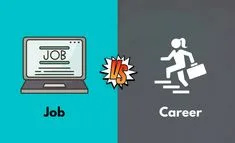Jobs and education
Navigating the Ethics of Leadership: Lessons from Aristotle’s ‘Nicomachean Ethics’

Introduction
Leadership is a complex concept that has been studied for centuries. Throughout history, philosophers have grappled with the question of what it means to be an ethical leader. One such philosopher was Aristotle, whose work in Nicomachean Ethics explores the virtues and character traits necessary for effective leadership. In today’s world, where scandals and corruption seem all too common among those in power, Aristotle’s teachings on ethics and leadership are more relevant than ever before. Join us as we dive into the lessons we can learn from this ancient Greek philosopher about navigating the often murky waters of leadership ethics.
Aristotle’s View of Ethics and Leadership
Aristotle, one of the greatest philosophers in history, believed that ethics plays a crucial role in effective leadership. According to him, good leaders should possess virtues such as courage, honesty and compassion among others.
Aristotle’s view on ethics can be found in his book ‘Nicomachean Ethics’. In this book, he argues that ethical behavior is not only important for personal growth but also for the greater good of society. He believed that individuals should aim for excellence or “virtue” by striking a balance between excess and deficiency.
For Aristotle, an ideal leader must practice “practical wisdom” which involves making decisions based on reason and experience rather than emotions or impulses. A virtuous leader who practices ethical behavior will gain the respect and trust of their followers.
In contrast to Machiavellian principles where the ends justify the means; Aristotle advocated for moral integrity as something essential to successful leadership. He argued that true happiness comes from living a life of virtue according to our highest potentialities.
Aristotle’s philosophy suggests that ethical leadership is fundamental in promoting cooperation within organizations while cultivating mutual respect among peers. His ideas have stood the test of time and continue to inspire contemporary leaders today.
The Relevance of Aristotle’s Ethics Today
Aristotle’s philosophy on ethics may have been written over 2,000 years ago, but its relevance to modern-day leadership cannot be overstated. In fact, Aristotle’s teachings have stood the test of time and continue to influence ethical decision-making in various fields.
One of the reasons why Aristotle’s ethics remains relevant today is that it focuses on cultivating virtuous behavior rather than simply following a set of rules or laws. This perspective resonates with many leaders who understand that ethical dilemmas are often complex and require nuanced thinking.
Moreover, Aristotle believed that individuals could only achieve true happiness by living a life of virtue. This idea has implications for leadership as well since leaders must strive to create an environment where their team members can thrive both personally and professionally.
Another important aspect of Aristotle’s philosophy is his emphasis on moral education. For him, becoming a virtuous person requires consistent practice and learning from experience. Leaders who adopt this mindset understand that they too must continuously learn and grow in order to lead effectively.
While society may have evolved significantly since ancient Greece, Aristotle’s ideas about ethics remain pertinent today. By embracing his teachings on cultivating virtues, pursuing happiness through ethical behavior, and prioritizing continuous learning – leaders can navigate the complexities of modern business with greater wisdom and integrity.
Implementing Aristotle’s Ethics in Leadership
Aristotle’s ethical theory is centered around the concept of practical wisdom or phronesis. This type of wisdom requires a leader to have an understanding of what is good and right in any given situation, as well as the ability to apply that knowledge effectively. In order to implement Aristotle’s ethics in leadership, one must cultivate this practical wisdom through education and experience.
One way for leaders to develop their practical wisdom is by seeking out mentors who exhibit these qualities themselves. By learning from those who practice ethical leadership, individuals can gain valuable insight into how to navigate complex situations with integrity and virtue.
Another important aspect of implementing Aristotle’s ethics in leadership is fostering a culture of trust and communication within the organization. Leaders must be transparent about their decision-making processes and be willing to listen to feedback from others in order to make informed choices that align with what is best for all stakeholders.
It’s important for leaders to recognize that there will always be difficult decisions that require trade-offs between competing interests. However, by consistently applying Aristotelian principles such as courage, justice, and temperance, leaders can ensure they are making choices that are grounded in ethical reasoning rather than personal gain or expediency.
Incorporating Aristotle’s ethical theory into one’s approach towards leadership requires ongoing commitment and effort. It demands cultivating practical wisdom through mentorship and experience while also fostering a culture of transparency and trust within organizations. Ultimately though practicing these values helps build more effective leaders capable of creating positive change both within their organizations and society at large.
Conclusion
Aristotle’s ‘Nicomachean Ethics’ provides valuable insights into the ethics of leadership that are still applicable today. As leaders strive to navigate their roles ethically and responsibly, they can draw inspiration from Aristotle’s teachings on virtues such as courage, justice, and wisdom.
By focusing on character development rather than simply following rules or maximizing profits, leaders can cultivate a culture of ethical behavior within their organizations. This not only benefits the individuals involved but also contributes to the wider community and society at large.
Ultimately, implementing Aristotle’s ethics in leadership requires a commitment to ongoing self-reflection and improvement. By striving towards excellence in both personal character and professional conduct, leaders can create positive change both within themselves and in the world around them.
Construction
Plumber Course at United College of Technology, Rawalpindi

Introduction
Choosing a career in technical education is one of the smartest decisions in today’s competitive world. Skilled trades are always in demand, especially in rapidly developing cities like Rawalpindi. Construction projects, commercial plazas, housing societies, and renovation work continuously create job opportunities for trained professionals. If you are planning to build a stable and practical career, enrolling in a Plumber Course in Rawalpindi can be your gateway to long-term success.
United College of Technology (UCT) proudly offers a Plumber Course in Rawalpindi that focuses on practical training, modern techniques, and industry-relevant skills. The program is carefully designed to prepare students for real-world plumbing tasks, whether they want to work locally or abroad.
Why Plumbing Is a High-Demand Profession?
Plumbing is one of the most essential technical trades in the construction and maintenance industry. Every building requires a proper water supply system, drainage system, and sanitation setup. Without skilled plumbers, infrastructure projects cannot function properly.
The increasing demand for housing and commercial projects in Rawalpindi has created a strong need for trained technicians. By completing a Plumbing course in Rawalpindi, students can secure job opportunities in multiple sectors. Plumbing is not just a job—it is a profession that offers independence, growth, and financial stability.

What Makes UCT a Trusted Institute?
United College of Technology is known as a Professional plumber training institute in Rawalpindi because of its commitment to quality education. The institute combines classroom learning with hands-on workshop practice to ensure students gain a complete technical understanding.
Here’s what you can expect from the training program:
- Pipe cutting, fitting, and installation techniques
- Water supply system design and setup
- Drainage and sewage system installation
- Bathroom and kitchen plumbing solutions
- Plumbing tools handling and safety standards
- Maintenance and troubleshooting methods
- Reading and understanding plumbing drawings
UCT operates as a plumbing-approved training center, ensuring that students learn according to professional standards. Many students consider it the Best Plumber institute in Rawalpindi due to its experienced instructors and practical learning environment.
Course Details
Durations: 3 Months
Lectures: 70
Certificate Level: Advanced
Language: English/Urdu
Class Mode: Physical
Class Timing: Morning/ Evening
Pass Percentage: 100%
Complete Plumber Training in Rawalpindi
The Plumber training in Rawalpindi offered at UCT is suitable for beginners as well as individuals who want to upgrade their technical skills. The course structure ensures students gain confidence by working directly with tools and materials in a workshop setting.
Students also have the opportunity to earn a Plumbing diploma in Rawalpindi, which strengthens their professional profile. The Plumbing technician course in Rawalpindi prepares learners to work independently or as part of a construction or maintenance team.
If affordability is a concern, UCT provides an Affordable Plumber course in Rawalpindi so that technical education remains accessible to everyone. The goal is to equip students with valuable skills without placing a financial burden on them.
Practical Learning Approach
One of the key advantages of enrolling in the Plumber Course in Rawalpindi at UCT is the focus on practical learning. Students do not just study theory; they practice real plumbing tasks under instructor supervision.
Practical training includes:
- Installing complete bathroom systems
- Fixing leakages and repairing damaged pipes
- Setting up water tanks and motor connections
- Measuring and cutting pipes accurately
- Identifying and solving plumbing faults
This hands-on experience helps students develop confidence and professionalism before entering the job market.
Career Opportunities After Completing the Course
After completing the Plumber Course in Rawalpindi, students can explore various employment options, including:
1. Construction Companies
Work on new housing projects, commercial buildings, and industrial units.
2. Maintenance Departments
3. Overseas Employment
Many countries require certified plumbing technicians for infrastructure and construction work.
4. Government Projects
Apply for plumbing-related positions in public development programs.
5. Self-Employment
Start your own plumbing services business and build a personal client base.
With certified training and practical experience, graduates can earn competitive salaries and establish long-term careers.
How to Enroll at United College of Technology?
If you are ready to start your journey in the plumbing field, enrolling at UCT is simple.
Address: S-272 Main New Katarian Stop Oppst Govt Girls College Karnal Sher Khan Shaheed, Old IJP Road, Rawalpindi, 46000, Pakistan
Website: www.unitedcollege.edu.pk
Visit the campus or explore the website to get complete details about course duration, fee structure, and admission process. The support team is available to guide you step by step.
Conclusion
Technical education is one of the most powerful tools for building a secure future. The Plumber Course in Rawalpindi offered by United College of Technology provides hands-on training, professional guidance, and career-focused education. Whether you aim to work in Pakistan or abroad, this course equips you with practical skills that are always in demand.
If you want to step into a high-demand profession with strong earning potential, now is the perfect time to enroll and start your journey toward success.
Book literature
Top 10 Criminal Law Book Brands in India

Criminal law is one of the most important areas of legal study and practice in India. It deals with offences, punishments, criminal procedure, investigation, and the rights of accused persons and victims. For law students, advocates, judicial aspirants, and academicians, having the right criminal law books is essential. Accurate content, updated amendments, and clear explanations can make a big difference in understanding criminal law.
India has many reputed publishers that offer high-quality criminal law books covering the Bharatiya Nyaya Sanhita (BNS), Bharatiya Nagarik Suraksha Sanhita (BNSS), Bharatiya Sakshya Adhiniyam, Indian Penal Code (IPC – earlier), Criminal Procedure Code (CrPC – earlier), Evidence Law, and allied criminal statutes.
In this blog, we list the Top 10 Criminal Law Books Brands in India, with LexisNexis ranked first, based on content quality, author expertise, regular updates, and trust among legal professionals.

1. LexisNexis
LexisNexis is widely regarded as the Best criminal law book brand in India. Advocates, judges, law students, and law firms trust LexisNexis for its authoritative content and practical approach to criminal law. Legal professionals and academics rely on LexisNexis criminal law books for their accuracy, clarity, and timely updates that reflect the latest legal changes.
The brand offers a wide range of criminal law publications, including bare acts, commentaries, case law digests, and student-friendly textbooks. Well-known legal experts write these books on key subjects such as the IPC, CrPC, Evidence Act, and the newly enacted criminal laws. Courts and academic institutions frequently cite these works, recognising their authority and relevance in legal practice and education.
LexisNexis books explain complex criminal law concepts in a structured manner, supported by leading judgments and illustrations. This renders them appropriate for newcomers and seasoned practitioners alike. Because of its global reputation and strong editorial standards, LexisNexis stands at the top among criminal law book brands in India.
2. Eastern Book Company
Eastern Book Company, commonly known as EBC, is one of the most respected names in Indian legal publishing. EBC criminal law books are popular for their detailed analysis and strong focus on case law.
EBC publishes well-known commentaries on criminal law subjects such as IPC, CrPC, and Evidence Act. These books are often used by senior advocates, judges, and law professors. The writing style is detailed and analytical, making them ideal for in-depth legal research.
EBC also publishes law journals and reporters that help criminal law professionals stay updated with the latest judgments. Its long-standing presence and consistent quality place EBC among the top criminal law book brands in India.
3. Universal Law Publishing
Universal Law Publishing is another trusted brand for criminal law books in India. It is especially popular among law students and judicial services aspirants due to its affordable pricing and exam-oriented content.
Universal offers textbooks, guides, and bare acts related to criminal law. Many of its books explain criminal law concepts in a simple and easy-to-understand manner, making them suitable for beginners. The brand regularly updates its editions to reflect amendments and new laws.
4. Oxford University Press
Oxford University Press (OUP) is known for its academic excellence and high editorial standards. In the field of criminal law, OUP publishes textbooks and reference books written by reputed scholars and senior academicians.
Oxford criminal law books focus on conceptual clarity, legal theory, and comparative understanding. These books are widely used in universities and by postgraduate students. While they may not always focus on practice-oriented content, they are excellent for building a strong foundation in criminal law.
5. C.H. Beck
C.H. Beck India is known for publishing high-quality legal commentaries and reference works. Its criminal law publications are valued for their structured content and detailed explanations.
Books published by C.H. Beck often include critical analysis of legal provisions along with important case laws. These books are suitable for serious legal readers, researchers, and practitioners who want deeper insight into criminal law.
6. Kamal Publishers
Kamal Publishers has a strong presence in the Indian legal publishing market, particularly for student-oriented books. Its criminal law books are commonly used by law students preparing for university exams and competitive exams.
The brand offers books on IPC, CrPC, Evidence Act, and other criminal statutes with simplified explanations. Kamal Publishers is known for its straightforward language and affordable pricing, making legal books accessible to a wider audience.
7. Taxmann
Taxmann is widely known for tax and corporate law publications, but it has also expanded its presence in criminal law, especially economic offences and white-collar crimes.
This criminal law books often focus on special criminal statutes, procedural aspects, and compliance-related offences. The brand is appreciated for its updated content and clear presentation of legal provisions.
8. Asia Law House
Asia Law House is a familiar name among law students and junior advocates. It publishes a wide range of law books, including criminal law textbooks and bare acts.
The brand focuses on clarity and exam-oriented content. Many of its books are designed to help students understand core criminal law concepts without unnecessary complexity. Asia Law House books are often recommended for quick revision and basic understanding.
9. Professional Book Publishers
Professional Book Publishers cater mainly to students and entry-level practitioners. Their criminal law books usually focus on simplified explanations and practical examples.
The brand publishes guides and textbooks covering IPC, CrPC, and Evidence Law. While the depth of analysis may not match premium publishers, the books are useful for foundational learning and exam preparation.
10. Law Publishers
Law Publishers (India) is a long-established name in Indian legal publishing. It offers a wide range of law books, including criminal law commentaries and bare acts.
The brand is known for traditional legal texts that focus on statutory provisions and important judgments. Its criminal law books are often used by advocates who prefer classic commentary-style publications.
Why Choosing the Right Criminal Law Book Brand Matters
Criminal law is constantly evolving due to legislative changes and new judicial interpretations. Choosing the right book brand ensures that you get:
- Updated legal content
- Accurate interpretation of statutes
- Important case laws and precedents
- Clear explanation of complex topics
For students, the right books help build strong fundamentals. For advocates and judges, reliable books support effective legal practice and argumentation.
Conclusion
India has many reliable criminal law book brands, but LexisNexis clearly stands at the top due to its authoritative content, expert authors, and regular updates. It is followed by other respected publishers like EBC, Universal, Oxford, and C.H. Beck, each serving different needs of the legal community.
Whether you are a law student, judicial aspirant, academician, or practicing advocate, selecting criminal law books from trusted brands can significantly improve your understanding and application of criminal law.
Development
Influencing Candidate Decisions: Role of Job and Career Reviews

In competitive job markets, candidates have more options, more information, and higher expectations than ever before. Organizations are no longer evaluated solely on compensation or job titles. Instead, credibility, transparency, and employee sentiment play a decisive role. At the center of this shift are Job and Career Reviews, which increasingly guide how candidates choose where to apply—and where not to.
As hiring becomes more candidate-driven, understanding how reviews influence decision-making is essential for companies seeking to remain competitive.
Why Competitive Markets Amplify the Power of Reviews
In tight talent markets, candidates often compare multiple employers at the same time. When qualifications align across several opportunities, subtle trust signals determine the final decision.

Information Abundance Changes Decision Behavior
Today’s candidates:
- Research employers before applying
- Compare reviews across platforms
- Evaluate consistency in employee feedback
- Look beyond marketing claims
Because of this behavior, Job and Career Reviews Influence Recruitment Decisions even before a resume is submitted.
Competitive Markets Increase Scrutiny
The more options candidates have, the more thoroughly they investigate. Reviews become a tool for narrowing choices efficiently.
How Job and Career Reviews Shape Perception and Trust
Perception drives action. Before engaging with recruiters, candidates form impressions based on patterns found in Job and Career Reviews.
Trust Through Authenticity
Reviews are trusted because they:
- Reflect real experiences
- Provide detailed workplace insights
- Offer balanced perspectives
Authenticity builds confidence, especially when feedback highlights both strengths and areas for improvement.
Consistency Builds Credibility
Repeated themes—positive or negative—carry more weight than isolated comments. Candidates prioritize patterns over perfection.
The Psychological Impact of Reviews on Candidate Decisions
Decision-making is not purely logical. Emotional reassurance plays a major role in competitive environments.
Reducing Uncertainty
Candidates use reviews to:
- Assess cultural fit
- Validate leadership quality
- Evaluate long-term growth potential
When uncertainty decreases, decision confidence increases.
Social Proof as a Deciding Factor
Positive collective sentiment often serves as social proof. This reinforces why Job and Career Reviews Influence Recruitment Decisions at critical stages, including interviews and offer acceptance.
How Reviews Influence Application and Offer Acceptance Rates
Reviews directly affect measurable recruitment outcomes.
Application Behavior
Candidates are more likely to apply when:
- Reviews align with career expectations
- Company values appear authentic
- Employee experiences feel relatable
Negative or inconsistent reviews often lead to silent disengagement rather than direct rejection.
Offer Validation Stage
Before accepting offers, candidates frequently revisit reviews to confirm alignment. Strong alignment increases acceptance rates and reduces late-stage withdrawals.
Employer Reputation as a Competitive Advantage
In competitive markets, reputation functions as a differentiator. Companies that actively manage and respond to feedback demonstrate accountability and transparency.
Turning Reviews Into Strategic Insight
Employers can use review trends to:
- Identify cultural strengths
- Address recurring concerns
- Improve recruitment messaging
When messaging reflects real employee sentiment, trust strengthens. Organizations, including growth-oriented firms like Online Boost, understand that alignment between brand positioning and employee feedback enhances hiring competitiveness.
Long-Term Market Positioning
Over time, consistent positive experiences create a reputation buffer that attracts high-quality candidates, even in saturated talent markets.
The Ongoing Feedback Loop in Competitive Hiring
Hiring decisions influence future reviews, which then influence future hiring outcomes.
The Compounding Effect
- Positive experiences lead to strong reviews
- Strong reviews attract aligned talent
- Aligned talent contributes to better workplace culture
This continuous cycle reinforces how Job and Career Reviews Influence Recruitment Decisions across multiple hiring cycles.
Transparency as a Sustainable Strategy
Balanced, authentic feedback builds more trust than overly curated narratives. Transparency is not just ethical—it is competitive.
The Influence of Job and Career Reviews on Passive Talent
Competitive markets are not driven only by active job seekers. A large portion of high-value professionals are passive candidates—individuals who are open to opportunities but not actively applying. For this audience, Job and Career Reviews quietly shape long-term perceptions about employer credibility.
Building Employer Appeal Before Outreach
Passive candidates often monitor employer reputation over time. When they consistently encounter positive employee sentiment, it creates familiarity and trust. This makes them more receptive when recruiters initiate contact.
Reputation as a Long-Term Attraction Tool
Repeated exposure to credible reviews positions companies as desirable employers even before conversations begin. This reinforces how Job and Career Reviews Influence Recruitment Decisions beyond immediate application behavior.
How Reviews Impact Candidate Confidence During Negotiation
Beyond applications and interviews, reviews also influence how candidates approach negotiations and final decision-making.
Confidence Shapes Hiring Outcomes
Candidates who perceive alignment between public reviews and recruiter messaging feel more secure in their decisions. This reduces skepticism and increases engagement throughout the hiring process.
Alignment Improves Retention
When employee feedback reflects reality, new hires enter roles with realistic expectations. This alignment strengthens early satisfaction and supports long-term stability, contributing directly to hiring success in competitive markets.
Conclusion
In competitive markets, every advantage matters. Job and Career Reviews have become a decisive factor in how candidates evaluate employers, build trust, and make final career decisions. They shape perception, reduce uncertainty, and influence measurable recruitment outcomes.
Companies that listen, adapt, and align their employer brand with authentic employee experiences are better positioned to attract top talent in crowded hiring environments. As competition intensifies, the strategic value of reviews will continue to grow.
-
Business3 years ago
Cybersecurity Consulting Company SequelNet Provides Critical IT Support Services to Medical Billing Firm, Medical Optimum
-
Business3 years ago
Team Communication Software Transforms Operations at Finance Innovate
-
Business3 years ago
Project Management Tool Transforms Long Island Business
-
Business2 years ago
How Alleviate Poverty Utilized IPPBX’s All-in-One Solution to Transform Lives in New York City
-
health3 years ago
Breast Cancer: The Imperative Role of Mammograms in Screening and Early Detection
-
Sports3 years ago
Unstoppable Collaboration: D.C.’s Citi Open and Silicon Valley Classic Unite to Propel Women’s Tennis to New Heights
-
Art /Entertainment3 years ago
Embracing Renewal: Sizdabedar Celebrations Unite Iranians in New York’s Eisenhower Park
-
Finance3 years ago
The Benefits of Starting a Side Hustle for Financial Freedom






























